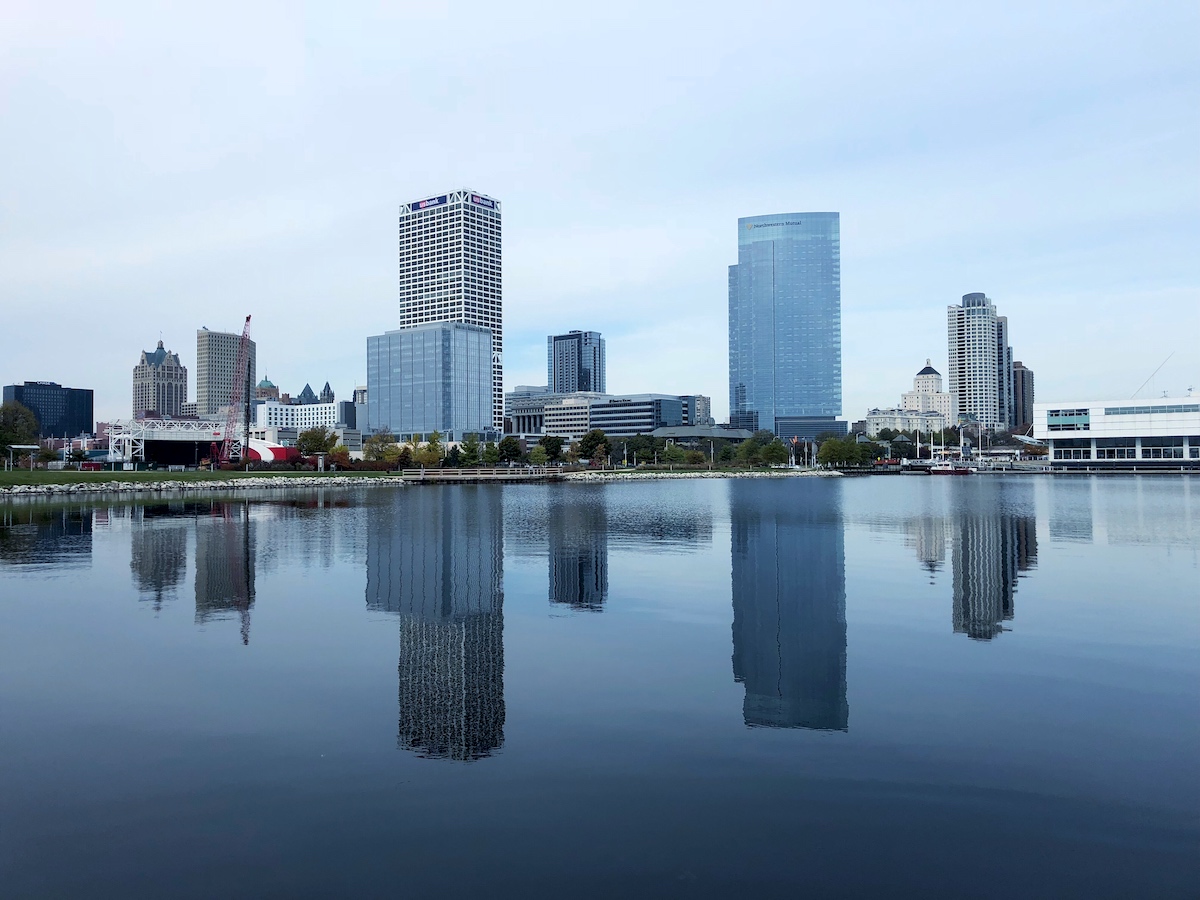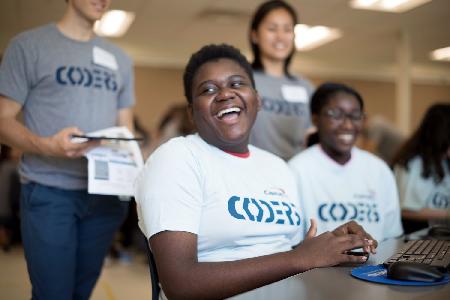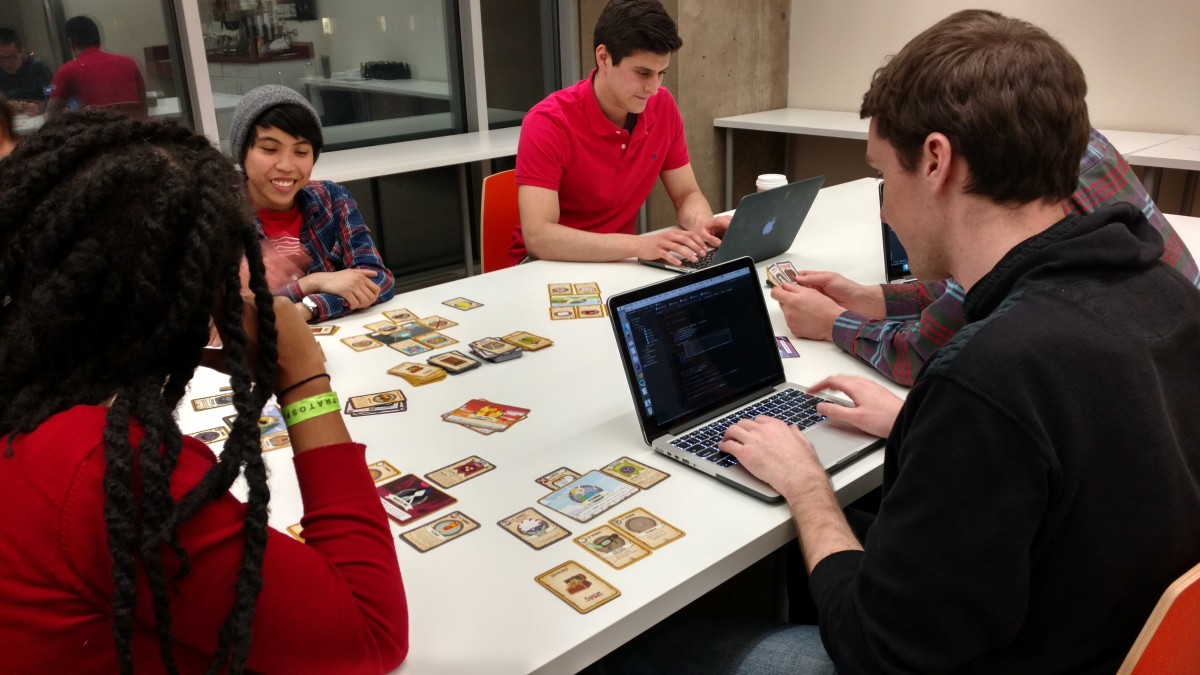How can old cities revive themselves?
Those already established need to go further — while making it easier for others to follow.
“Sometimes we get the invite, but we don’t get the plus one,” said Montrèal Cain, a teacher turned entrepreneur. Based in Milwaukee, he’s part of a new wave of entrepreneurs bending technology to solve deep social problems. How did we at Technical.ly meet him? Well, we were introduced by Christopher Perceptions, himself a founder growing a national practice.
It’s a recurring theme we see at Technical.ly when reporting across the United States. In the last 20 years, digital transformation has come to dominate economic development and efforts to make more inclusive economies. The tools powering that transformation, including debt-fueled speculative entrepreneurship and technical skills, have been heavily concentrated within existing wealth — resulting in workforces that are whiter and more male than the general population.
Making tech more representative of the people it serves isn’t just a moral stance, it’s a dominant economic strategy. To grow a constrained workforce and pursue new innovations, local economies need the strength of its entire population.
In a place like Milwaukee, with flat population growth and challenges with poverty, its own revival is dependent on reversing generations of disinvestment. To get it done, those who have found success already must reach new heights, and far more new voices need to join the fray. The future for Milwaukee, the slow-growth state of Wisconsin and much of a reimagined US Midwest depends on it.
Where Milwaukee’s efforts stand
The city is making strides in coordinating its resources. The Milwaukee Tech Hub Coalition, for example, has taken up the mantle of bringing corporate, nonprofit and other groups into the same room for the sake of collaborating on an ambitious goal: “inclusively double” tech talent across the region. Its FOR-M incubator for underrepresented founders has a mission to be the open door to the local tech ecosystem.
Milwaukee Tech Week and the new VC MKE events bring entrepreneurial-minded folks together IRL. And Milky Way Tech Hub and Sherman Phoenix, both founded or cofounded by Black women, are specifically focused on boosting entrepreneurs of color in a majority-minority city.
But those efforts are newer — most launched within the past few years — whereas other, bigger tech communities have been growing for decades. Venture capital still lags behind cities of comparable size, and Milwaukee is losing entrepreneurial talent to regions more tolerable to risk. The city is not immune to nationwide tech hiring challenges.
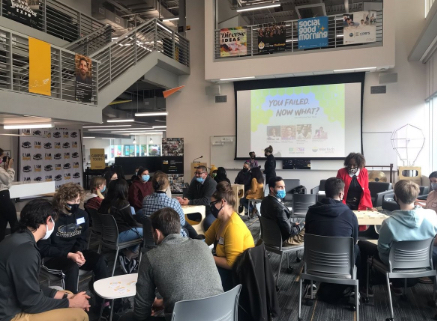
(Photo courtesy of the Milwaukee Tech Hub Coalition)
Separately from tech and entrepreneurship, Milwaukee continues to grapple with more urgent human challenges. Its reputation as one of the United States’ most segregated cities stands firm, and it faces high infant mortality rates, especially in communities of color.
What are the city’s innovators doing about it all? As we’ve seen in our This Week in Milwaukee Rising series, they’re going beyond talking about the issues to standing up programs, partnerships and companies. They’re working in communities, inside and outside systems.
But before action can happen, the underlying issues must be assessed: What does it really mean to thrive in Milwaukee? Cain and Perceptions joined Technical.ly last week in a conversation of a dozen entrepreneurs and civic leaders who are working to make Milwaukee a better place.
Choices mean prosperity
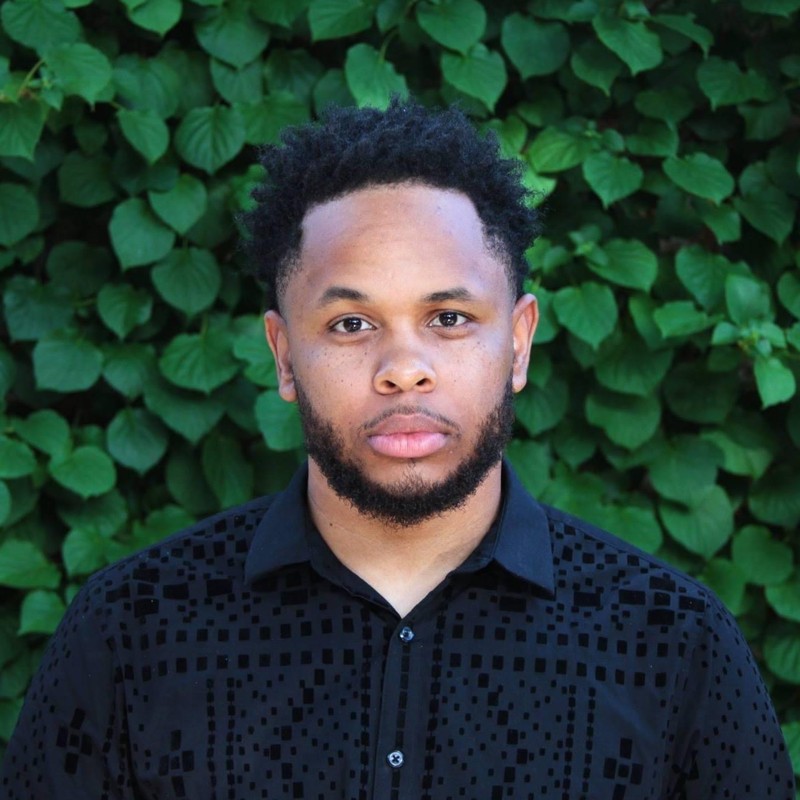
Christopher Perceptions. (Courtesy photo)
First, disparities must be faced, said Perceptions, who is the founder of blockchain startup PerceptForm. Plenty of people are already thriving because of the silos they live in — “but there are so many other pockets of Milwaukee where there are [not] opportunities, and ultimately, where there are broken hearts, and broken hearts break things.”
From there, the issues at hand remind of those faced by other 21st century American cities.
Choice is a fundamental factor, noted Teresa Esser, an impact investor focused on housing.
“I think if we all have a place to sleep, and if we all have enough to eat, and if we all are working at jobs that we at least choose and we are not being trafficked, that’s on the way to thriving,” she said.
Dr. Kristina Ropella, dean of the Opus College of Engineering at Marquette University, agrees: “People should want to be here. They want to live in Milwaukee, they want to be part of the community, they actually feel like they’re part of the community, they’re contributing to the community.”

Kathy Henrich. (Courtesy photo)
Getting there is the harder part. Offering education and training to enable economic contributions is a first step.
Milwaukee Tech Hub CEO Kathy Henrich thinks of thriving as creating “life-changing opportunities.” That means focusing on both strengthening the overall economy, and on bolstering industries promising the most growth, thus leading to those jobs that can sustain a livelihood.
It all starts with the long view, argued John Knapp, who’s leading the new Innovation Alley initiative at Marquette. Today’s 20-year-olds won’t be prepared for college, or to find that life-changing job, if they weren’t offered the resources they needed to learn at age 4.
“We have to think about the lives we’re providing for our young people across our whole city,” Knapp said. “That leads to opportunity over time.
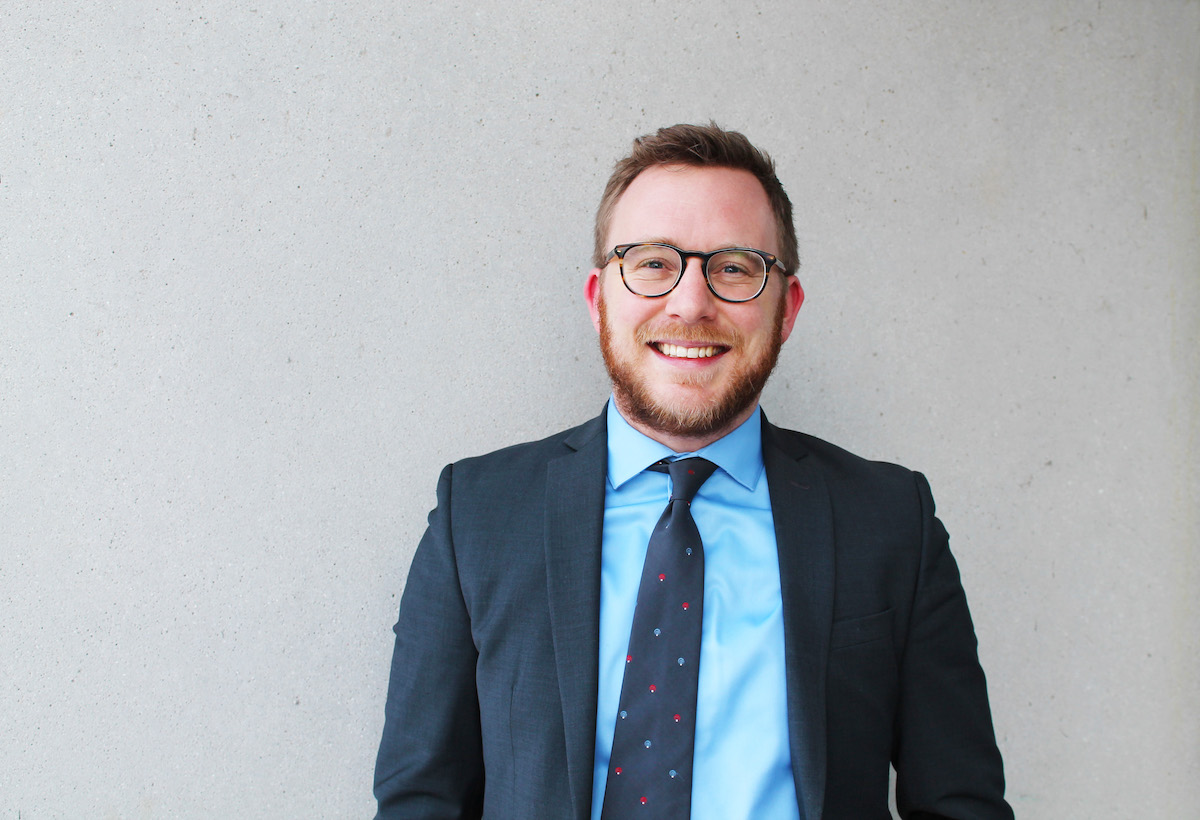
John Knapp, executive director of Innovation Alley. (Courtesy photo)
Power in collaboration
Bringing more people into the “thriving” tent will require an ongoing commitment to that heralded tenet — collaboration. Historically, the literal and metaphorical tables where decisions get made are surrounded by the same people who have long held power, but don’t come from the communities being discussed.

Montrèal Cain. (Photo via LinkedIn)
Cain, who founded mental health startup HouseCall Wisconsin, said it’s time for some of those leaders to cede that power and make room for new ideas.
“We want to be in places and welcome into spaces where our gifts make room for us, where individuals who may have had seats at boards for 25 years are creating successes, and they’re doing it through diversity as well as inclusion,” he said. “We want to make sure that when we look at ‘what does a success track look like in Wisconsin,’ that the creatives and the CEOs are sitting at the same table.”
And on a community level, anchor institutions can play a similar role, Knapp said — for instance, what the multi-partner Near West Side Partners has done to revitalize the Milwaukee neighborhood.
That type of work doesn’t solve today’s challenges now. It’s an attempt to address tomorrow’s, or those of 40 years from now.
As Perceptions put it: “How do you eat an elephant? One bite at a time. It’s going to take time.”
The question is whether Milwaukee can eat fast enough to catch up with those who started eating a decade ago.
What happens now?
The last 20 years of local tech economy growth was fueled in part by a private-market business investing craze, aided by low-interest rates and early wins in digital transformation. We’re entering a new stage. Local economic change will have to adapt, too.
Milwaukee is still a poor city. It requires both economic success and opportunities for those locked out of the conversation so far — including more intentional plus-ones.
Subscribe to This Week in Milwaukee Rising:
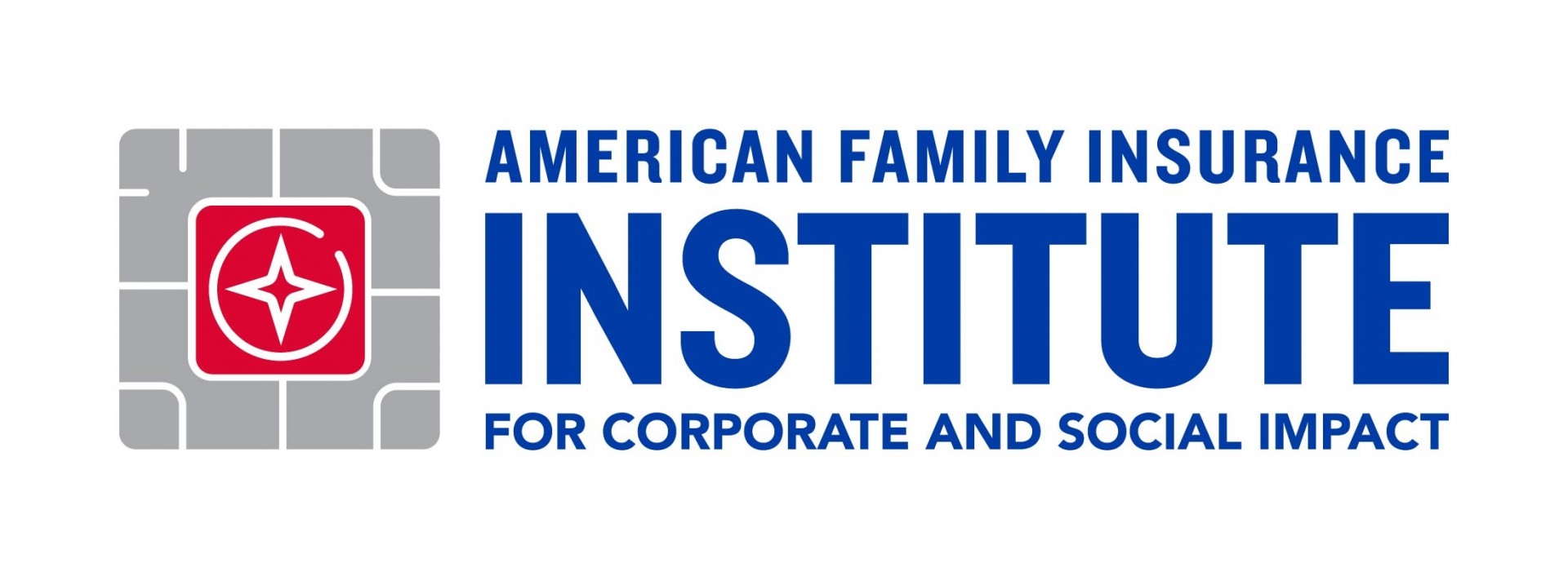
This article appears as part of This Week in Milwaukee Rising, a weekly newsletter from Technical.ly highlighting the innovators bringing a more just, equitable and dynamic Milwaukee economy. Subscribe here. The series is underwritten by American Family Insurance Institute for Corporate and Social Impact.
Before you go...
Please consider supporting Technical.ly to keep our independent journalism strong. Unlike most business-focused media outlets, we don’t have a paywall. Instead, we count on your personal and organizational support.
3 ways to support our work:- Contribute to the Journalism Fund. Charitable giving ensures our information remains free and accessible for residents to discover workforce programs and entrepreneurship pathways. This includes philanthropic grants and individual tax-deductible donations from readers like you.
- Use our Preferred Partners. Our directory of vetted providers offers high-quality recommendations for services our readers need, and each referral supports our journalism.
- Use our services. If you need entrepreneurs and tech leaders to buy your services, are seeking technologists to hire or want more professionals to know about your ecosystem, Technical.ly has the biggest and most engaged audience in the mid-Atlantic. We help companies tell their stories and answer big questions to meet and serve our community.
Join our growing Slack community
Join 5,000 tech professionals and entrepreneurs in our community Slack today!

